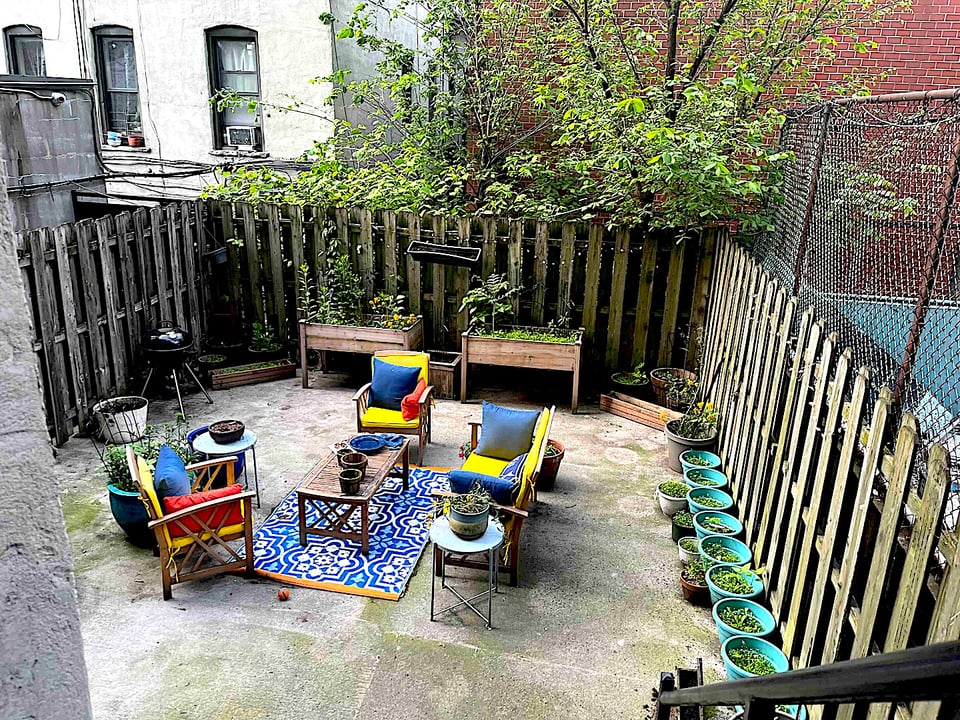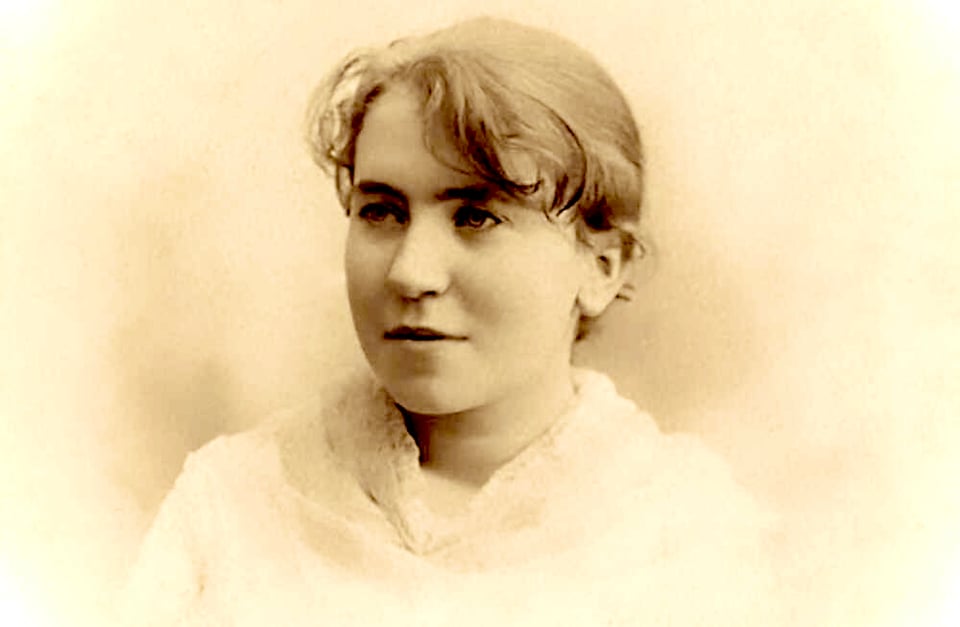Small Vices


I’m lucky enough to have a tiny garden in the middle of New York City, where space is at a premium and outdoor space even more so. It’s a patch of concrete that I’ve amended with raised beds and an array of turquoise pots, and plant, every spring, with an array of vegetables and herbs and flowers, to decidedly mixed results.
Yesterday, coming up the iron steps from the backyard with my hands covered in store-bought soil (which I stack by the sackful in an unobtrusive corner, where the sacks can be permeated by the rain and helpful earthworms), having just planted dill and impatiens and chamomile daisies, I was struck by the unwonted hopefulness of the act, the unwonted hopefulness of everything I’ve done lately. I wrote a book about the ill winds blowing across our political landscape, in the hopes that, having read it, some people would be inspired to act towards change; I plant my blooms and fruits, in the hope that the wind and sun and rain favor me, that I’ll still be around in a month or two when the seedlings grow to maturity. There’s nothing quite as hopeful as pressing a seed into the earth. Or pressing a word onto a page.
There’s nothing quite so hard as being hopeful when the bad tide feels high—when, irrespective of the fact that I pledged to stop making political predictions ca. 2016, one doesn’t need to resort to oneiromancy or other esoteric forms of augury to see that very little good is coming our way, the likely outcome of the November elections is a tide of shit so huge it can’t even be salvaged for manure, and nothing will ever be pure again.
You may have noticed that this newsletter has been a little light on original political commentary lately—not because original political events haven’t been happening, because they have, in plenty; or because I lack opinions, a surfeit of which has always been either my curse or boon from the gods since birth. But because over all of it—the wars far away with their miasma of catastrophic violence, and the relentless, grinding nature of the abrogation of rights in this country, whether they’re reproductive or protest-related, book bans or bans on trans care—feels so inevitable, and so obviously in service of a larger, national project to make being the wrong type of person, or saying the wrong type of thing in the wrong way, effectively illegal. It’s a sensation of suffocation where you stand. In such a pall it feels wrongheaded, even frivolous, to keep a hold on hope. To keep writing, to keep planting. To keep spreading ideas and hope for their uptake; to watch the chives sprout, little and green and new, and hope they’ll survive to better weather.
The Sword and the Sandwich is a newsletter about serious extremism and equally serious sandwiches. Please consider supporting this work with a paid subscription:
Subscribe now
But I have always been stubborn.
And the people I venerate—the poet Osip Mandelstam; John Brown; the teenagers of the White Rose resistance; Emma Goldman—didn’t back down when the crushing forces of their eras of totalitarianism (slavery, Stalinism, Nazism, the utter determination of the American government to crush all dissent during World War One) came down on their backs, they didn’t stop until they died. Until they did, they were still fighting.

I think about Emma Goldman a lot—the young girl who came over from Russia to the similarly inhospitable climate of upstate New York and set about becoming an agitator, a role she would play for the rest of her life. Most often she’s depicted as a bespectacled matron, but the photos of her as a young Jewish girl landing in the new golden land whose factory conditions turned out to be just as bad as in the old country, and who fought them just as hard—those eyes have the spark of a lifetime of determination in them, and a lifetime of a fierce and incorruptible clinging to joy. Reading her memoirs, one gets the sense that every indignity was her fuel, that despair, even deportation, could not thwart her, that she loved fiercely, and let neither her ardor nor her ideological fervor be abrogated by anything. It’s a tough act to follow, even as a shadow of that brilliance, even as an idol. But it is that dual persistence—that fierce grip on both the ideal and the beloved, the need and the want—that I so admire in her, a century after she chided the very jury that would condemn her for her writings:
I wish to say that I am a social student. It is my mission in life to ascertain the cause of our social evils and of our social difficulties. As a student of social wrongs it is my aim to diagnose a wrong. To simply condemn the man who has committed an act of political violence, in order to save my skin, would be as unpardonable as it would be on the part of the physician, who is called to diagnose a case, to condemn the patient because the patient has tuberculosis, cancer, or some other disease. The honest, earnest, sincere physician does not only prescribe medicine, he tries to find out the cause of the disease. And if the patient is at all capable as to means, the doctor will say to him, “Get out of this putrid air, get out of the factory, get out of the place where your lungs are being infected.” He will not merely give him medicine. He will tell him the cause of the disease. And that is precisely my position in regard to acts of violence. That is what I have said on every platform. I have attempted to explain the cause and the reason for acts of political violence.
It is organized violence on top which creates individual violence at the bottom. It is the accumulated indignation against organized wrong, organized crime, organized injustice which drives the political offender to his act. To condemn him means to be blind to the causes which make him. I can no more do it, nor have I the right to, than the physician who were to condemn the patient for his disease. You and I and all of us who remain indifferent to the crimes of poverty, of war, of human degradation, are equally responsible for the act committed by the political offender. May I therefore be permitted to say, in the words of a great teacher: “He who is without sin among you, let him cast the first stone.” Does that mean advocating violence?
And in a letter to a friend, from prison, two years later:
Thank you, dear, for your beautiful birthday letter. Yes, I think a number of people thought of me that day. Quite a few sent letters, telegrams, flowers, and many other gifts. I felt quite important on that day, though I was really ill in my cell and had as my next cell-door neighbor a sick lady. For a time Kate O’Hare was very ill, but she seems to have recuperated and is now feeling as well as one can in prison. Among the many things which came, though not as a birthday gift, and later, were two large bunches of roses—all the way from Moscow. Not really the roses, but the money for them. Bill Shatov [old friend and co-worker], of whom you have undoubtedly heard, sent money to a friend in Paris and he in turn gave it to Mary [Heaton Vorse] O’Brien who was there at the time. She gave it to Stella and in that way the beautiful roses reached me. More beautiful however is the spirit which prompted the gift. Think of it, our friends in Russia who are in death’s grip with the blackest reaction that has ever conspired against the efforts of the people, yet they have time to think of us here, and of our small vices among which my love for flowers is by no means the least.
Even the blackest of reactions, even the grip of death, even ill in her cell, she could not—would not—quench her love of roses. She could not stop being the physician who wanted to diagnose social ills.
And so I think of Emma Goldman as I press my seeds home. I think of her when I write about systems that seem unchangeable, when I press for change. It is in her image I want to nurture hope when so little feels hopeful. And for her sake, to carry on and call the earth my mother, and carry the love of pleasure and the fierce love that engenders protest on into another century of organized wrong.
These are my small, dim thoughts for this season of renewal, of pain as well as life, of penury and pleasure alike. I hope you read the words I’ve sown and think about cultivating your heart as a garden of your own: a place to grow the hot strange things that turn to anger and to love, given hope and time.
With love,
Talia

Add a comment: